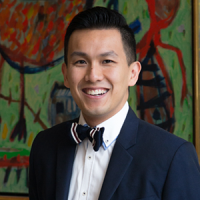Articles / Is it burnout?

0 hours
These are activities that expand general practice knowledge, skills and attitudes, related to your scope of practice.
0 hours
These are activities that require reflection on feedback about your work.
0 hours
These are activities that use your work data to ensure quality results.
These are activities that expand general practice knowledge, skills and attitudes, related to your scope of practice.
These are activities that require reflection on feedback about your work.
These are activities that use your work data to ensure quality results.
We know doctors are at high risk of burnout, with some reports finding that physicians experience 1.5 times more burnout that other professions .
A recent Healthed survey of more than 1600 GPs suggested that 64% regularly feel burned out from their work, and 38% said they’ve become less empathetic to patients on a daily or weekly basis.
Previous research has linked burnout to early retirement, addictive behaviours, deteriorating wellbeing and worsening patient safety, among other issues.
Dr Jo Braid, a physician-turned-coach who works with medical professionals experiencing burnout says it can take a lot for doctors, who she describes as “problem solvers”, to admit they’re feeling this way.
By the time they get to her they’re often at rock bottom, she says, feeling overwhelmed and unable to function properly.
GPs may not have burnout on their radar when they assess patients or consider their own situation, and they may think it’s depression. But if a standard depression scale doesn’t match the symptoms, then consider burnout, she says.
She adds, “there is a simple differentiating question – ‘is it pervasive?’”
Dr Braid has been through burnout herself so she knows what it’s like. She found that even though she was at her wits end professionally, she still enjoyed her family and social life, so she knew she wasn’t depressed.
Burnout was first defined in the 1970s and is now categorised as a “syndrome” that results from “chronic workplace stress that has not been successfully managed,” according to the World Health Organization’s International Disease Classification (ICD-11).
Dr Braid says there are three main risk factors:
- the workplace itself
- your lifestyle and,
- your personality
When it comes to the workplace, feeling you have little or no control, that you get little recognition or credit for your work, monotony of the work, or chaotic and high-pressure work places are all risk factors.
A lack of work/life balance, a lack of close social connections and poor sleep are lifestyle risk factors.
On the personality side, it’s a type A personality, people who feel they need to be in control and perfectionists who are at higher risk. A burnout assessment tool can help predict the likelihood of burnout.
Burnout can start insidiously, Dr Braid says, describing it as “like 1000 paper cuts” – the first few aren’t that bad but once they stack up, it’s “a bloody mess”.
At that stage you may think that quitting and walking away to a new role somewhere else may solve the problem, but Dr Braid says that isn’t always the case.
“You have to address how you manage your mind” or you risk history repeating.
That’s not to say you are the problem, but there are tools that can help you cope with any workplace, so you don’t face the same issues again in the future.
Once you get past the ‘crisis point’ it can help to work on things like self-awareness, relaxation techniques to lower cortisol levels such as box breathing and mindfulness, she says.
Dr Braid uses a CBT based model, but also asks open ended ‘why’ type questions to help people re-evaluate, for example, why they say ‘yes’ to all requests or why they aren’t setting boundaries.
One simple boundary she suggests is moving to a different room at lunchtime without your laptop or phone. This gives you time away from the endless emails and a valuable chance to reset.
“Connect with another human,” she says. “They don’t have to be a problem solver, just someone to debrief or vent to can be helpful.”
And speak to your GP. If, however, you feel that you can’t share your situation with someone you know, the support services listed below can provide confidential support.
It’s important to note, if you feel like you’re at burnout point – you are not alone.
Dr Braid says around 63% of doctors experiences burnout at some stage.
Despite it being extremely common, it can still be hard for people to ask for help – even though we know coaching can be effective.
A review of 14 studies (including 5 randomised controlled studies) involving more 1099 participants showed that “evidence from available RCTs suggests coaching for physicians can improve well-being and reduce distress/burnout.
Another barrier to seeking help may be the stigma associated with being seen as ‘not coping’.
This needs to change, Dr Braid says.
Taking less notice of other people’s opinions and developing what Dr Braid terms as a ‘so what’ attitude is a step in the right direction.
“It’s not a failure, it’s not a black mark against them,” she says. “But with a growth mindset things can change. Most of us have a tough inner critic and it won’t let us ask for help, but we’re all human and sometimes we need it.”
For more on this topic, listen to Dr Braid’s recent Healthed podcast.
Recommended resources:
Coaches specialising in burnout in healthcare:

RSV Prevention in Infants and Pregnant Women

STIs – Common and Tricky Cases

Role of Testosterone During Menopause - Evidence vs Hype

Vision and Driving Fitness: Key Insights for Health Practitioners
Yes
No
Listen to expert interviews.
Click to open in a new tab
Browse the latest articles from Healthed.
Once you confirm you’ve read this article you can complete a Patient Case Review to earn 0.5 hours CPD in the Reviewing Performance (RP) category.
Select ‘Confirm & learn‘ when you have read this article in its entirety and you will be taken to begin your Patient Case Review.
Menopause and MHT
Multiple sclerosis vs antibody disease
Using SGLT2 to reduce cardiovascular death in T2D
Peripheral arterial disease
